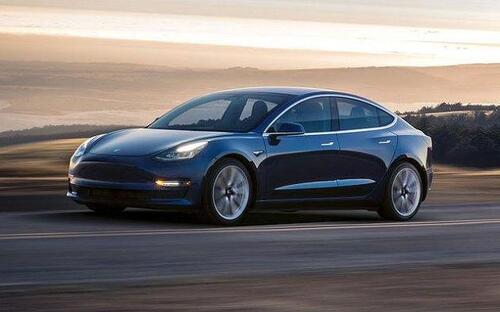This Blog Post is now in the queue for publishing as requested.
Depending on transfer load expect completion in around 15 minutes or 60 minutes if it has just been published by the owner.
This Blog Post has been removed from the queue for publishing as requested.
SUV drivers will pay extra in the future
Posted by
Otto Knotzer on June 09, 2020 - 5:26am
Buyers of larger cars should be subject to an additional charge - with one exception. There is bad news for smokers too. The tax rate for alcoholic beverages, on the other hand, is expected to decrease.
In the middle of the crisis in the auto industry, the draft law on the new regulation of vehicle tax is bursting. The content is explosive, as large, heavy, strong cars with combustion engines are likely to be more heavily loaded in the future. This includes many of the popular SUV vehicles. It is therefore a question of the market with which German manufacturers are currently earning the money that they claim they need to survive in the change to alternative drives.
The total amount of vehicle tax currently around 9.5 billion euros should hardly change. Vehicles that are registered for the first time after the turn of the year will experience noticeable shifts, however. "The tax will change significantly compared to the usual amount," says the draft bill. As before, the motor vehicle tax is to be calculated from the cubic capacity and a climate component. The first element remains the same to stabilize the volume.
The second element is tightened, a CO2 rate is determined for each level, the individual amounts are then added: the rate is zero up to 95 grams of carbon dioxide per kilometer, followed by a level of 96 to 115 grams per kilometer with a tax rate of 2 Euros per gram and kilometer. The next two levels range from 116 to 135 and from 136 to 155 grams per kilometer with tax rates from 2.20 euros in stages to 4 euros (over 195 grams per kilometer).
Extended until the end of 2030
According to the draft law, the average of the 3.6 million new cars registered in 2019 was 157 grams per kilometer. According to the Kraftfahrt-Bundesamt (KBA), around a fifth of the cars were in the SUV segment, making the sporty off-road vehicles the strongest segment before the compact cars. Almost 30 percent of new registrations emitted between 161 and 200 grams of CO2 per kilometer. More than 9 percent even surpass the 201 gram mark.
In the case of the stricter vehicle tax, many popular higher-priced models would become more expensive for future buyers: The VW Touareg newly registered in April averaged around 226 grams of CO2 per kilometer via the different types of fuel, the Range Rover from Land Rover to around 245 grams, the Porsche Cayenne averages around 221 grams. For comparison: New VW Golf emitted an average of 120 grams.
In future, higher fuel consumption should not only be felt financially at the gas station, it says in the draft bill. "The next time you regularly buy a new car, the choice without bans and 'penalty' should fall on a product that meets your individual needs and, at the same time, creates the precondition for reducing emissions of climate-damaging CO2 emissions." the vehicle tax will be extended until the end of 2030.
There is now an exception for off-road vehicles with an open loading area: Pick-ups of this type, which are particularly popular in America, also among private individuals, are still to be classified as light commercial vehicles, so that, for example, artisans in the Corona crisis are not additionally affected strain.
Except for cigarettes
The Union criticizes the bill that small low-emission cars will not be relieved, but at best will be taxed as before. “Anyone who chooses a climate-friendly car should pay less vehicle tax than before. On the other hand, more has to be paid for cars with high emissions, ”warned Union parliamentary group leader Andreas Jung. There still had to be "intensive advice," he told the F.A.Z.
From the point of view of the highest lobby association, the VDA, the vehicle tax has so far only had a minor steering effect with regard to the environmental impact of vehicles. The draft that is now being submitted is more closely geared to CO2 emissions, the association said on request. This effect could be increased if the displacement component were replaced by taking into account the pollutant emissions of a vehicle. This is associated with an “additional incentive” to buy low-emission cars.


